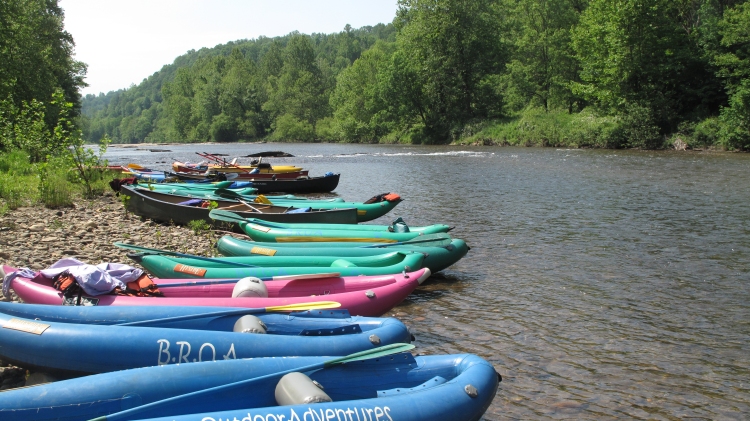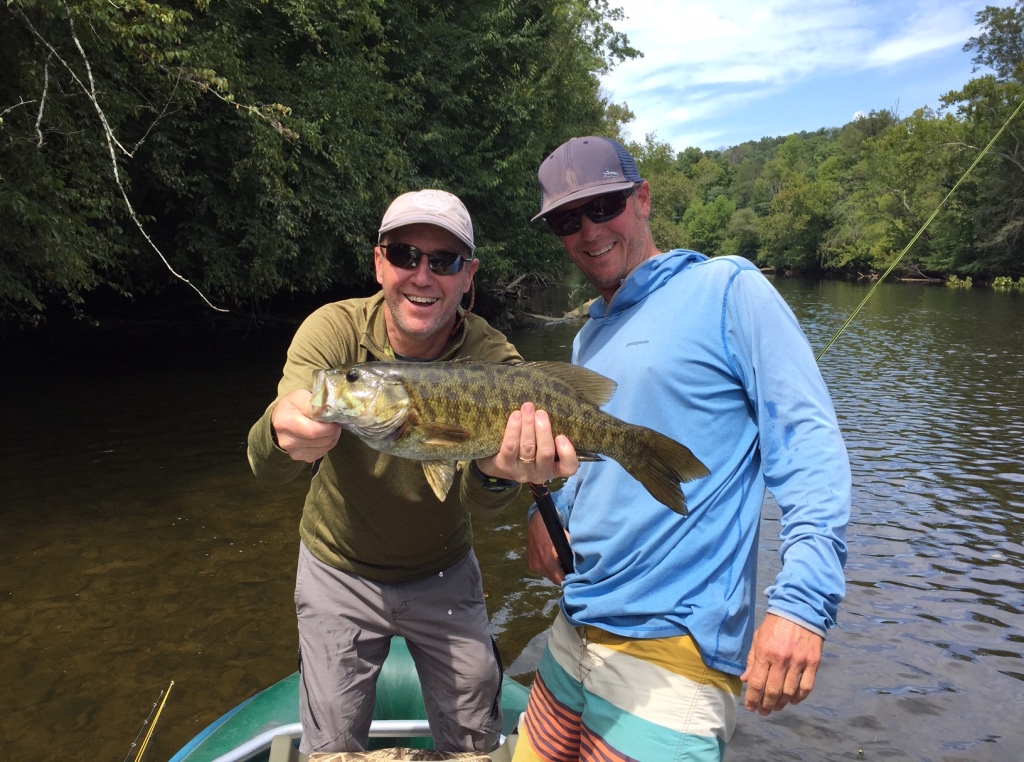
The Business and Recreation Work Group focuses on developing positive connections and enhancing understanding of the monetary and aesthetic values of the French Broad River and its tributaries. By working with the business community (ex. gear builders, tour guides, breweries, agriculture, Chambers of Commerce, Tourism Development Authorities), recreation providers, and other interested stakeholders in the eight WNC counties that form the watershed, we believe the basin can support both values in ways that are river-friendly and sustainable for future generations to enjoy.
Long-term goals for the work group include:

- Maintain and improve economic sustainability and recreation popularity of the watershed;
- Increase responsible use of the river;
- Celebrate improvements and health of watershed; and
- Expand breadth of participation in Business & Recreation Work Group.
Economic Value of the Watershed

In 2019 with funding from the Community Foundation of Western North Carolina and several additional stakeholder donations, the Business and Recreation Work Group initiated an economic impact study of the French Broad River in the 8 counties that it touches. Gathering data and analyzing results became the singular focus for Work Group members’ efforts.
Dr. Stephen Ha from Western Carolina University was selected to lead the study and while it was delayed due to the COVID-19 pandemic, it was completed in December 2021. By using business and visitor surveys, Dr. Ha’s team and Partnership members defined financial contributions from a variety of economic sectors that include breweries, fishing and rafting outfitters, summer camps, state and national parks, retail, and gear manufacturers. By using business and visitor surveys, his team will define financial contributions from a variety of economic sectors that include breweries, fishing and rafting outfitters, summer camps, agriculture and forestry, state and national parks, retail, and gear manufacturers.
Findings were released in March 2022 in a paper titled Economic Impact and Environmental Value Study of the French Broad River Watershed. The researchers concluded that the total economic impact of the French Broad River and its tributaries was $3.8 billion annually. Other key findings included:
- The watershed receives 6.9 million river-influenced visitors each year. Visitors spend an average of $1277 per visit, with most going to lodging, food, and beverage, resulting in $2.7 billion annually in visitor spending.
- The most common reasons for visiting the watershed are hiking (27.5%), whitewater rafting (23.1%), and kayaking (20%), followed by fishing (15.9%), jogging/walking (14.5%), and parks (14.2%).
- River-reliant businesses create or maintain 38,554 jobs each year, bringing the region an estimated $273 million in annual federal tax revenue and $234 million in annual state and local tax revenue.
For more details, see the fact sheet and presentation.
The economic study is the first comprehensive study of the river’s business, tourism, and recreational values to numerous stakeholders including local, state and federal government agencies; chambers of commerce; economic and tourism development agencies; conservation groups; local and statewide press groups; residents of the basin; and others. That visibility enhances public perception of the river and increases engagement of public and private groups in making improvements that are river-friendly and sustainable.
Nicknamed the ‘Value of Water Study’, it was first presented and gained recognition at the April 2022 Outdoor Economy Conference, was described in articles in the Asheville Citizen Times and Mountain Xpress, and was shared with numerous interested parties across the entire watershed over the next 18 months. The study has found great utility with stakeholders and FBRP partners in helping guide efforts that include attracting new businesses, recruiting employees, tourism development and conservation grant support. Plans are to periodically update the work with new data from existing sectors as well as new sectors that were not originally included.
Current Workgroup Focus
Spreading the word about the Value of Water Study consumed much of the back half of 2022 for Work Group and FBRP leaders.
More recently, the Work Group partners are involved with new opportunities including:
- Analysis of property value differences relative to River proximity,
- Opportunities for voluntary individual donations to support River stewardship,
- Potential usage permitting schemes, and
- Support for the Wild & Scenic Designation for N. Fork of the River.
Chair
- John “Jay” Hawthorne – Trout Unlimited, Land ‘O Sky Chapter (johnjhawthorne@gmail.com)
Get engaged
For more information or to get involved, please contact Jay Hawthorne (johnjhawthorne@gmail.com) or Sarah Fraser (sfraser@newbelgium.com)